
The first few days and weeks with your new puppy
Your puppy’s first day with you
Puppies like to know what to expect. Plan what your routine will be for feeding, toilet trips, exercise and grooming, then you can get started on day one. If you know what routine the breeder was following before collection, it's best to continue with this for consistency until your puppy is settled.
Your puppy’s first night with you
As with human babies, some puppies settle easily from the first night and others will give you sleepless nights as they adjust. Be patient and consistent and follow these tips.
Puppies tire very easily and need lots of sleep for their healthy development and wellbeing, so it’s important to give them plenty of opportunities to rest. At first, they need as much as 18 to 20 hours’ sleep every 24 hours. This will reduce to around 12 to 14 hours as they enter adulthood.
How to feed your puppy at first
Stick to the same diet initially
For the first week or two, give your puppy the same food as their previous owner, following the feeding recommendations on the pack. Any sudden dietary changes can stress them or cause digestive upsets.
Provide a quiet place to eat
This should be away from where you and any other pets eat. Leave your puppy in peace while they eat to prevent them feeling anxious or protective.
Begin a feeding schedule
Dogs feel reassured by knowing when they'll be fed, so begin a feeding routine from day one. During weaning, they'll need four meals a day and, until they're at least four months old, they'll need three meals a day. If you're ever unsure, ask your vet for advice.
Learn about puppy nutrition and feeding
Young dogs benefit from 3 or 4 small meals a day, instead of one or two big ones. You can use part of their main meal as food rewards for desired behaviours and during training sessions, to avoid overeating.
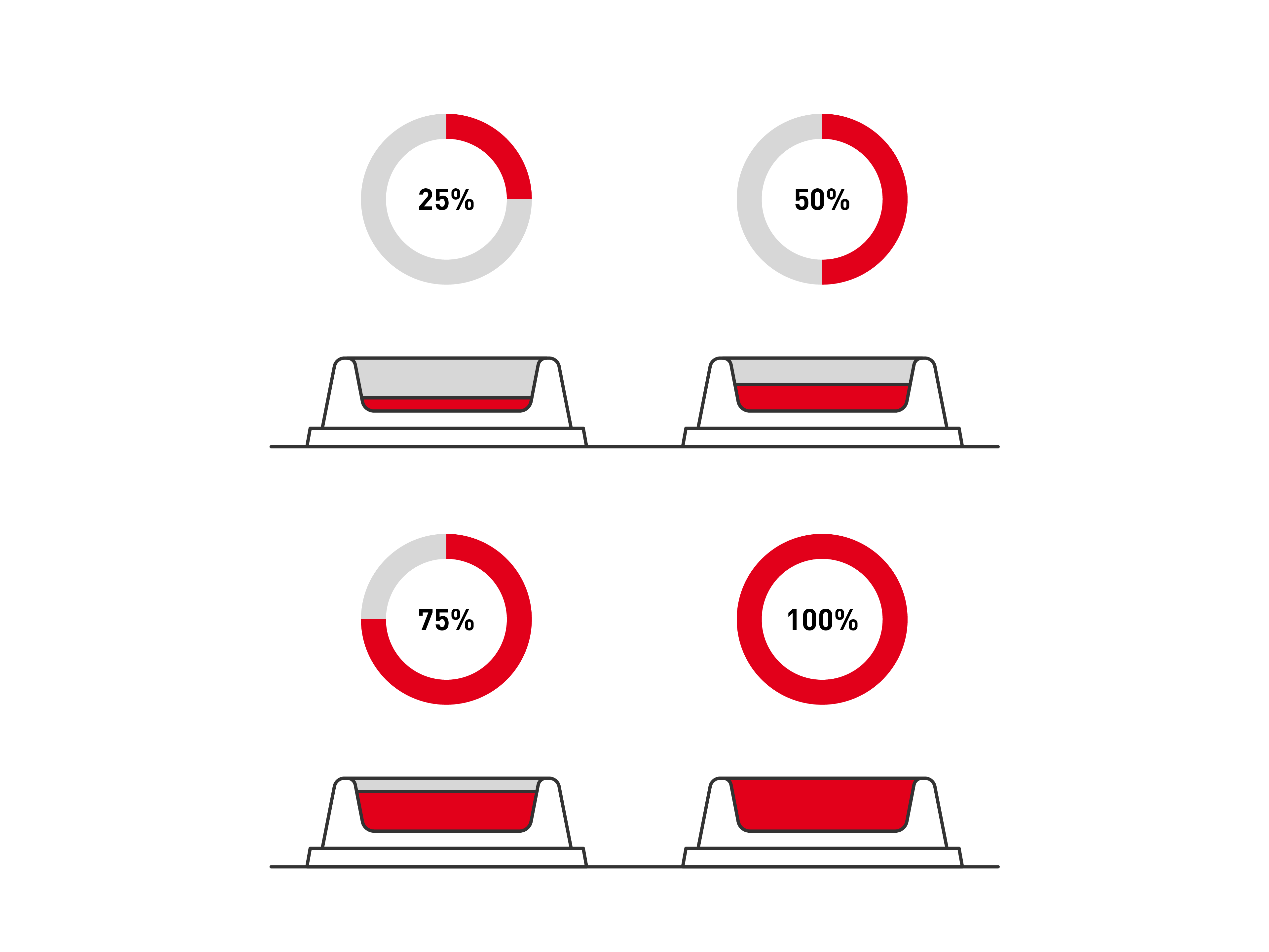
The safe way to change your puppy’s diet
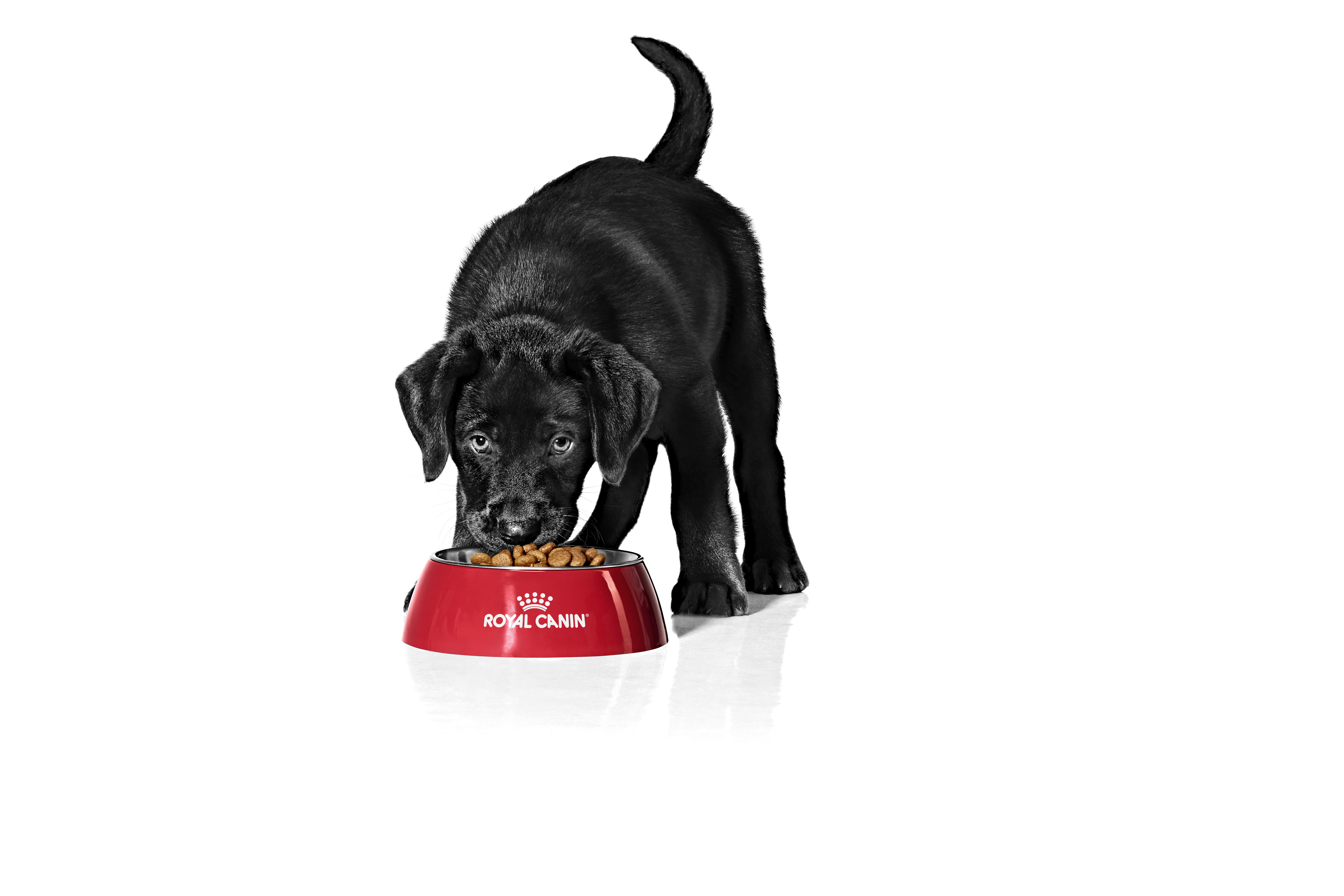
Feeding your puppy
Understanding canine nutrition and feeding habits will help you give your puppy the healthiest start in life.
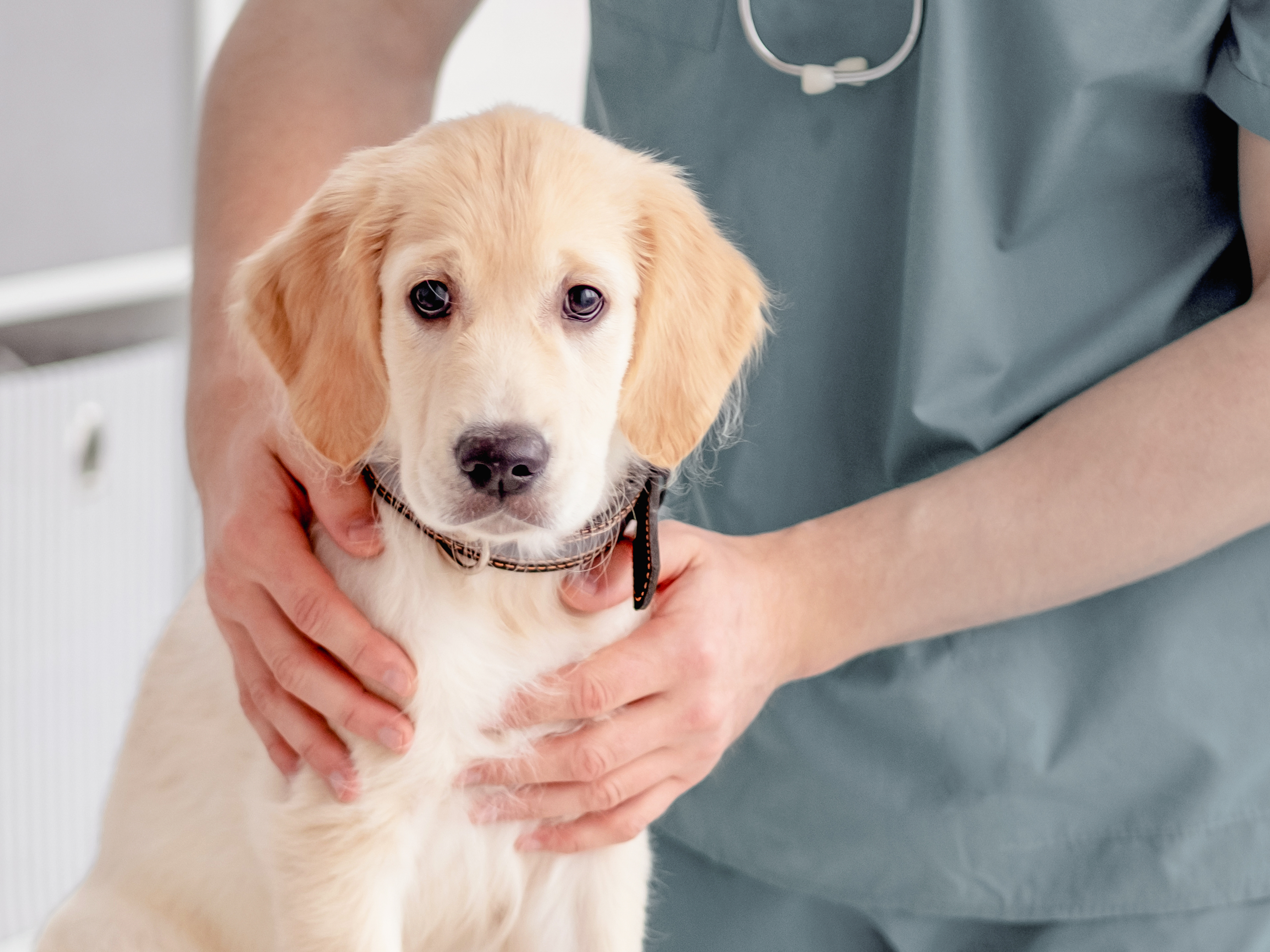
Take your puppy to the vet
Your puppy’s first visit to the vet
If you are unsure about their health status, taking your puppy to the vet for a check-up a few days after you bring them home is really important. If you’re well prepared, it’ll be a positive trip for your puppy. And it’s also a good opportunity for you to learn more about how to care for them.
Socialising your puppy
Here are a few ways you can begin socialising your puppy in their first week with you.
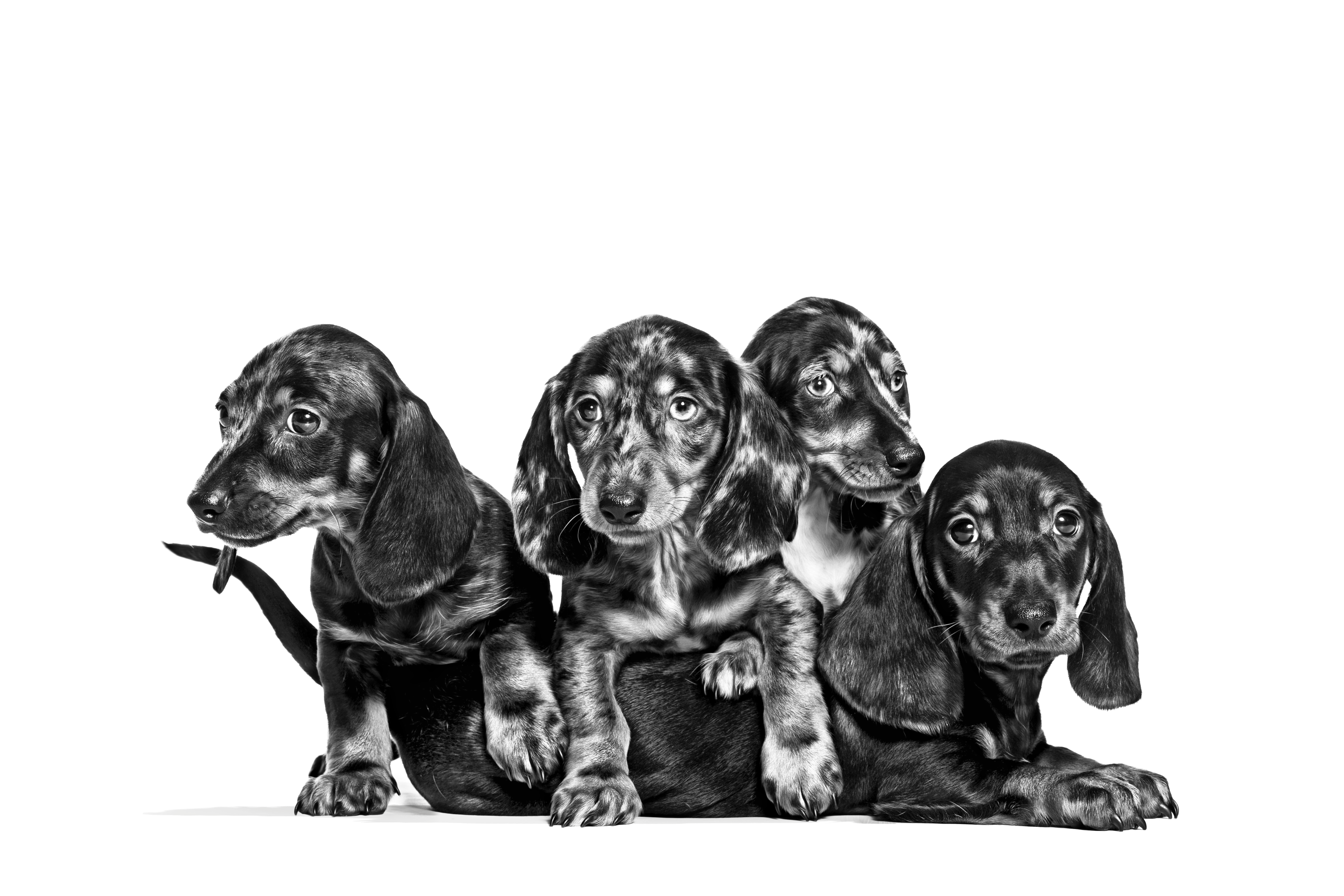
Learn about socialising your puppy
How to introduce your puppy to adults, children and pets
Introducing your puppy to new people and other animals is a great way to prepare them for the encounters they’ll face as they grow. But it’s crucial to do it in the right way.
Your puppy’s daytime and night time routines
The first few days and weeks are really important in ensuring your puppy integrates well into your family and grows into a healthy, well-behaved dog. If possible, it’s best to take the first week off work. Then you can focus on establishing routines that will help them feel secure and understand what’s expected of them.
Your puppy’s first walk
Once your puppy’s completed their vaccination schedule, and your vet’s confirmed they can mix with other dogs, they’ll need to be walked twice a day. Their first walk is an important event for them, and one you’ll want them to enjoy so they feel confident about future walks.
Follow the steps below to help get your puppy’s walks off to a great start.
Puppies tire very easily and need lots of sleep for their healthy development and wellbeing, so it’s important to give them plenty of opportunities to rest. At first, they need as much as 18 to 20 hours’ sleep every 24 hours. This will reduce to around 12 to 14 hours as they enter adulthood.
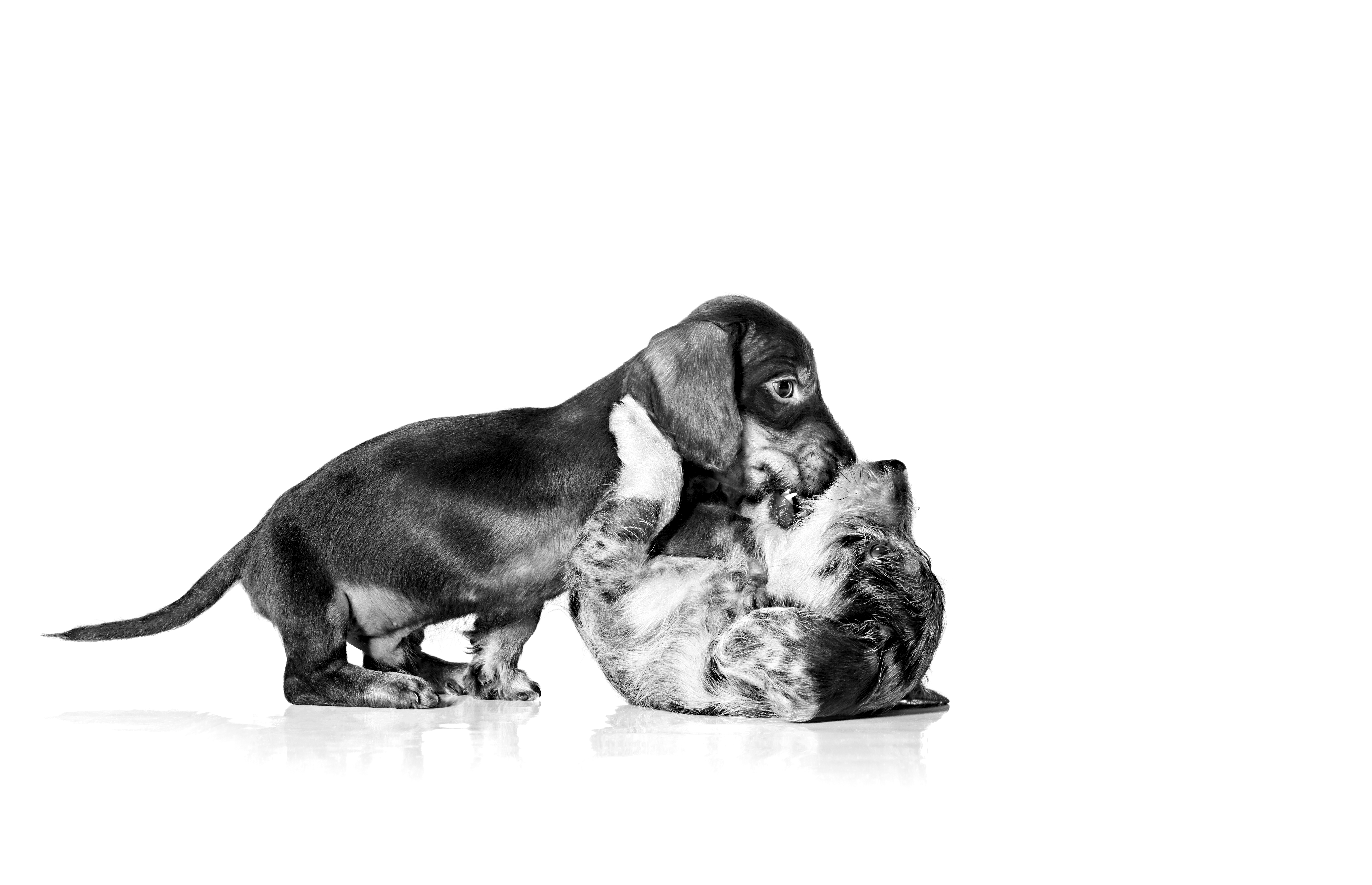
Training your puppy
View puppy ranges
Nutrition tailored to meet the specific needs of puppies of different ages, sizes and breeds.